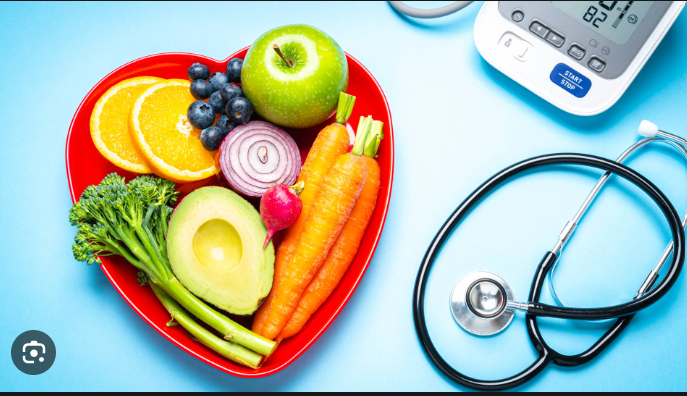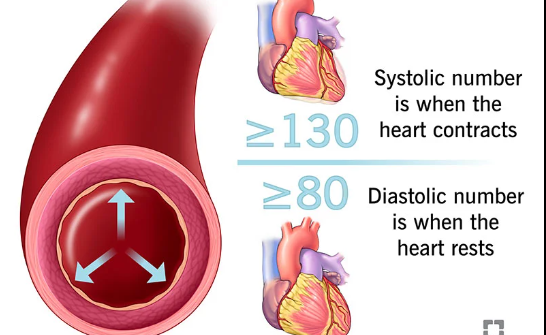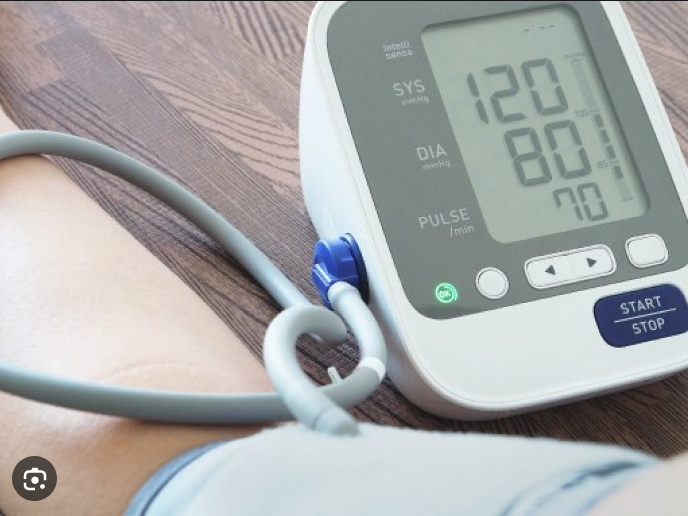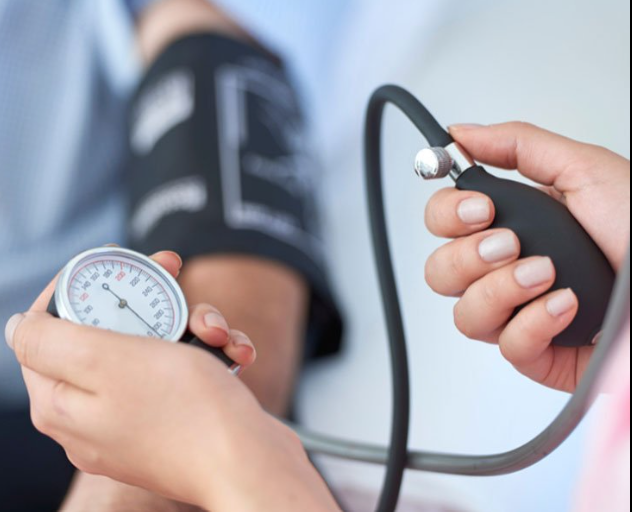Keep a close check on your blood pressure levels, according to experts.
According to health professionals, four out of every five persons with hypertension receive insufficient care globally.
This is crucial, according to experts, because high blood pressure can cause a number of other health problems, including as heart failure and stroke.
They point out that because hypertension symptoms might take years to manifest, it’s imperative to have your blood pressure monitored frequently.

also read-Nourishing Health Drinks for Women: Naturally Boosting Well-Being
Nearly 120 million adultsTrusted Source in the United States and one in three adultsTrusted Source worldwide suffer from hypertension.
Although hypertension is a common disorder, it can be harmful since symptoms may not appear for a few years and because it can cause more severe conditions such kidney damage, heart attack, stroke, and heart failure.
Although hypertension is a medical illness that may be treated, four out of every five hypertensive individuals worldwide do not receive proper care, according to a recent World Health Organization (WHO) research.
According to the WHO, 76 million deaths might be avoided between now and 2050 if countries increase coverage.
What is high blood pressure?

Another term for high blood pressure is hypertension.
According to the Centers for Disease Control and PreventionTrusted Source, blood pressure is the force of blood pushing against the walls of arteries.
Blood is transported by arteries from the heart to various bodily areas. When a person has hypertension, their artery blood pressure is greater than it should be. It may start to harm the heart if it remains high for an extended period of time.
“Blood pressure is one of those things that are unsexy to talk about because it’s so common and no one feels symptoms from it,” said Dr. Gregory Katz, a cardiologist at NYU Langone Heart and an assistant professor in the Department of Medicine in the Leon H. Charney School of Medicine.
Why do so many people fail to treat their high blood pressure?

The truth is that lifestyle adjustments can help lower blood pressure, according to Katz. What we eat, how we move, how we sleep, and how we handle stress are all important, yet for most people, putting these simple principles into practice is actually challenging. It’s not necessarily simple because it’s easy.
Taking daily medication is another treatment option for hypertension, although this can be difficult for both patients and medical professionals.
“Patients can persuade themselves to keep kicking the can down the road when it comes to adding more medication if they don’t feel anything when their blood pressure is high, or if patients have a blood pressure that is slightly borderline but not terrible,” Katz said.
A third problem Katz points out is the issue of people in the United States having inadequate access to quality healthcare, either because of lack of access or a lack of trust in the medical system.
That problem is not specific to the United States.
According to the WHO report, more than 75% of adults with hypertension live in low-income and middle-income countries, where access to healthcare can be challenging.
How to handle high blood pressure

According to the WHO, one of the healthcare treatments with the highest return on investment is the prevention, early detection, and efficient management of hypertension.
Dr. Tedros Adhanom GhebreyesusTrusted Source, Director-General of the WHO, stated in a statement that “only about one in five people with hypertension have controlled it. Hypertension can be effectively controlled with simple, inexpensive medication regimens.” Programs to control hypertension are still underfunded, underfunded, and ignored.
Treatment for hypertension can come from a variety of angles, including those involving the doctor-patient relationship, the individual, and public health.
“From the perspective of public health, it involves lowering the salt content of processed foods and working to create settings that encourage activity. It’s stress reduction, sleep, and exercise for people. Reaching out to communities whose blood pressure is not as closely monitored is what doctors call outreach.
According to Michael R. Bloomberg, WHO’s global ambassador for noncommunicable diseases and injuries, “most heart attacks and strokes in the world today can be prevented using reasonable, safe, accessible drugs and other measures, such as sodium reduction. “Treating hypertension with primary care will save lives and result in annual cost savings of billions of dollars.”
Also read-Zika virus found in Mumbai: What are the symptoms, warning signs, and preventative measures?
image source-google




































